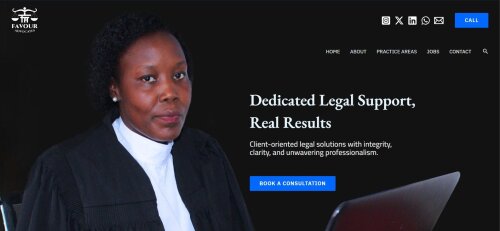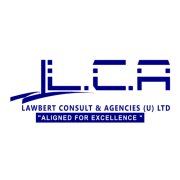Best Probate Lawyers in Kampala
Share your needs with us, get contacted by law firms.
Free. Takes 2 min.
List of the best lawyers in Kampala, Uganda
About Probate Law in Kampala, Uganda
Probate law in Kampala, Uganda, pertains to the legal procedures that occur after a person's death, mainly ensuring the deceased's estate is distributed as per their will or the law if a will is not present. It involves obtaining a legal document-Grant of Probate or Letters of Administration-from the court, which gives the executor or administrator the authority to settle the deceased's financial affairs and assets.
Why You May Need a Lawyer
Managing a deceased person's estate can be complex and emotionally taxing, especially without legal knowledge in probate law. You may need a probate lawyer to help you in situations such as:
- Interpreting the deceased's will, especially if it's unclear or contested
- Navigating through the Probate procedures and paperwork solicited by the courts
- Dealing with complex estates, large debts or overseas assets
- Disputing a testament or facing an estate litigation
Local Laws Overview
Under Ugandan law, the administrator or executor must apply for a grant of representation from the Family Division of the High Court of Uganda. The grant permits them to collect the deceased's assets, pay any debts or taxes, and distribute the remaining assets to beneficiaries. Without a valid will, the property is distributed in line with the Succession Act which prioritizes the spouse, children, and dependant relatives. In cases of intestacy (where there is no valid Will), the law also outlines different percentages of property distribution.
Frequently Asked Questions
What happens if there is no valid will?
If there isn't a valid will at the time of the person's death, the person is considered to have died 'intestate.' In such cases, the Succession Act of Uganda uses a specific formula to determine the distribution of assets amongst close family members.
What does an executor or administrator do?
An executor or administrator is responsible for managing the estate of the deceased. Tasks can include settling outstanding debts, paying taxes, and distributing the remainder of the estate to the rightful beneficiaries.
How long does the probate process take?
The duration of the probate process can vary depending on the complexity of the estate and whether there are any disputes or pending litigations. It could take several months or even a few years.
Can I handle probate without a lawyer?
While it's possible to handle probate without a lawyer, it can be a complex process and mistakes could potentially lead to legal issues. A probate lawyer can guide you through this process and ensure all legal obligations are met.
How to contest a will?
If you believe a will does not reflect the deceased person's true intentions or there are suspicions of foul play like forgery or undue influence, you can contest the Will. You will need a lawyer who specializes in probate matters to advise on the legal implications and process.
Additional Resources
Government bodies like the Family Division of the High Court of Uganda and the Uganda Registration Services Bureau can provide accurate information and assistance on procedural matters relating to probate. Public libraries and legal aid societies can also provide legal information and access to resource materials.
Next Steps
If you need legal assistance in probate, consult a law firm or lawyer who specializes in probate law in Kampala, Uganda. They can provide valuable advice, guide you through the process, and will be well versed in the local laws and regulations. It’s recommended to gather all relevant documents including the will, death certificate, and information of the deceased’s assets to make the process smoother.
Lawzana helps you find the best lawyers and law firms in Kampala through a curated and pre-screened list of qualified legal professionals. Our platform offers rankings and detailed profiles of attorneys and law firms, allowing you to compare based on practice areas, including Probate, experience, and client feedback.
Each profile includes a description of the firm's areas of practice, client reviews, team members and partners, year of establishment, spoken languages, office locations, contact information, social media presence, and any published articles or resources. Most firms on our platform speak English and are experienced in both local and international legal matters.
Get a quote from top-rated law firms in Kampala, Uganda — quickly, securely, and without unnecessary hassle.
Disclaimer:
The information provided on this page is for general informational purposes only and does not constitute legal advice. While we strive to ensure the accuracy and relevance of the content, legal information may change over time, and interpretations of the law can vary. You should always consult with a qualified legal professional for advice specific to your situation.
We disclaim all liability for actions taken or not taken based on the content of this page. If you believe any information is incorrect or outdated, please contact us, and we will review and update it where appropriate.














